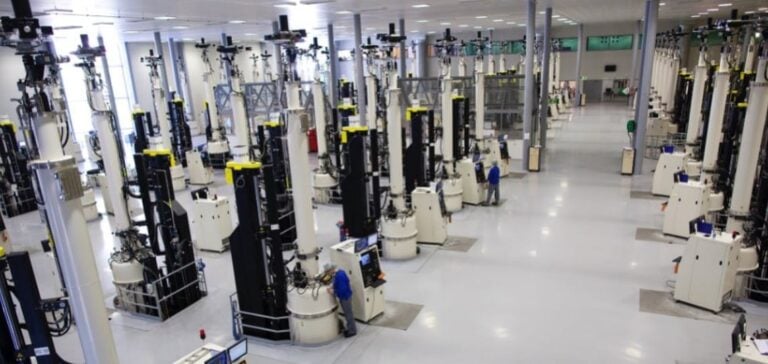NorSun, the Norwegian solar energy company, announces a $620 million investment to build its first U.S. plant in Tulsa, Oklahoma. The plant will produce silicon ingots and wafers, essential components in the manufacture of solar cells. The plant is scheduled to go into production in 2026, creating 320 direct jobs.
Local economic impact
Oklahoma Governor Kevin Stitt expressed his enthusiasm for the new facility, highlighting the economic benefits for Tulsa. This region, already renowned for its industrial history and robust infrastructure, benefits from a favorable investment environment. NorSun’s arrival could attract other companies in the energy sector, strengthening the local economic ecosystem. Enel has already chosen Oklahoma as the site for a solar cell and panel manufacturing facility.
Strategy and industrial context
NorSun’s investment is part of a wider trend to increase local production in the United States. The Biden administration is encouraging domestic manufacturing to reduce dependence on imports, particularly from China. NorSun’s new plant will meet the local content criteria required to qualify for tax incentives under the Inflation Reduction Act.
By producing essential components for the solar industry, NorSun has positioned itself as a key player in the US market. The Tulsa plant will help meet the growing demand for solar panels, particularly in a context of accelerated energy transition.
Market outlook
The U.S. renewable energy market is booming, and Tulsa, with its transportation infrastructure and access to raw materials, is ideally located to support this growth. The region also benefits from a skilled workforce and training programs tailored to the needs of the solar industry. Potential collaboration with local academic institutions could also boost innovation and production process efficiency.
NorSun’s location in Tulsa could also boost the local economy by creating indirect jobs and supporting local businesses in the supply chain. This dynamic could strengthen Tulsa’s position as a strategic hub for the US energy industry.
Impact on the supply chain
NorSun’s Tulsa plant will play a crucial role in strengthening the supply chain for solar components in the United States. By producing silicon ingots and wafers on US soil, the company will help reduce the time and costs associated with imports, while increasing the resilience of the supply chain to global disruptions.
Local production will also enable us to better meet the specific needs of US solar panel manufacturers, offering greater flexibility and fostering strategic partnerships with other industry players.
NorSun’s $620 million investment in a solar component production plant in Tulsa, Oklahoma, represents a significant step forward for the company and for the U.S. renewable energy sector. This investment strengthens the local supply chain, creates jobs and positions NorSun as a key player in the US market. With solid growth prospects and a strategic footprint, NorSun is well positioned to play a crucial role in the US solar industry.






















